2019-10-25 07:25:05
While you may think visiting the doctor yearly and getting your routine check-up should be enough to prevent cancers of all types, the truth is that many cancers can be tough to catch early no matter the preventative measures taken. Eating nutritious foods, knowing your family history, and getting plenty of physical activity is a great start for preventing cancer. But knowing exactly what signs and symptoms to look out for, even if you think your health and lifestyle is top-notch, can be life-saving.
Pancreatic cancer
The pancreas itself is a small organ that rests within the abdomen, and in general, its uses vary from helping with the digestion of food to secreting hormones that help with maintaining proper blood sugar levels. Pancreatic cancer is one of the most difficult to diagnose because many people don’t experience symptoms during the early stages. According to Cancer.Net, there are also no reliable tests for people who may have this cancer.
Some symptoms of pancreatic cancer include pain in the upper abdomen or upper back, the swelling of extremities due to a blood clot, bloated stomach, weakness, loss of appetite, nausea and vomiting, chills, fever, and weight loss. When the cancer begins to spread, jaundice is a common sign, and it can be seen in both the yellowing of the skin and eyes.
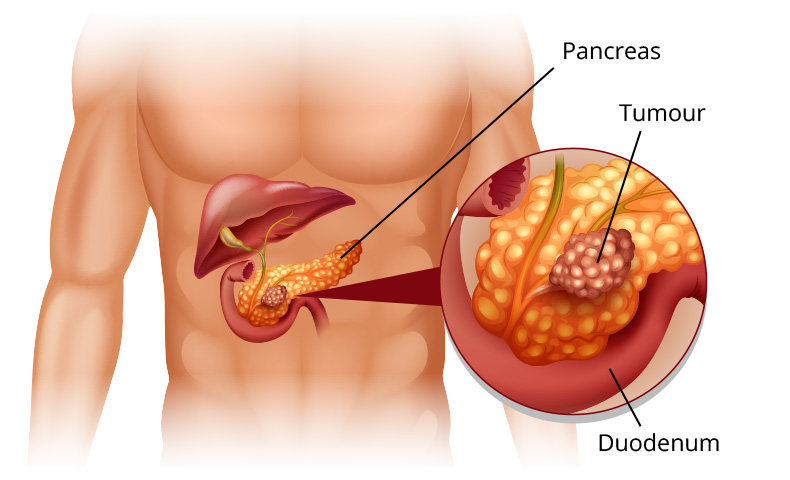
Prostate Cancer
Prostate cancer and other diseases related to the prostate are becoming more prevalent in American men. Patient Advocates for Advanced Cancer Treatments explains prostate cancer can be incredibly difficult to detect because of its general lack of symptoms, and by the time signs are noticeable, the cancer has most likely spread to the bone.
The prostate itself is a gland located at the base of the bladder and around the urethra, and it produces the fluid for sperm. Because the symptoms for prostate cancer and benign prostate enlargement are so similar and become a more common occurrence with age, many men commonly ignore these slight indicators. Some signs to look out for include urinary tract infections and a weak urine stream, blood in the urine, erectile dysfunction, and back pain.
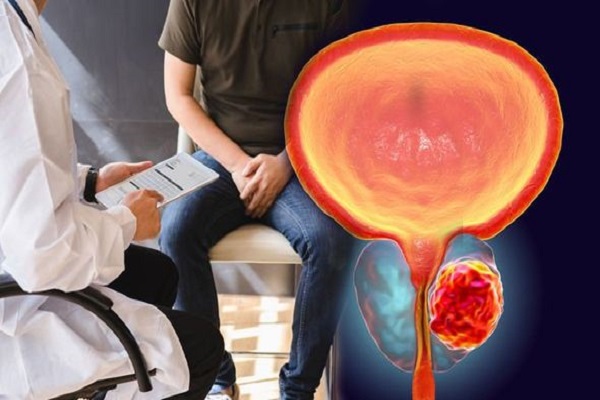
Bladder Cancer
While bladder cancer also does not come with a long list of noticeable symptoms, it’s also not a very well-known or heavily discussed disease. According to the University of Michigan Comprehensive Cancer Center, More than 1000 new cases of urinary bladder cancer are diagnosed in Vietnam every year, according to HCM City's Binh Dan Hospital.. This cancer is also more likely to occur in older adults, and the exposure to tobacco, industrial solvents, paints, and paint thinners raises this risk.
The most common symptom of bladder cancer is blood in the urine, but that’s about it. You may also notice a more frequent need to urinate or painful urination as well. Signs like pain in the midsection or the bones in the bladder area indicate it’s already spread.
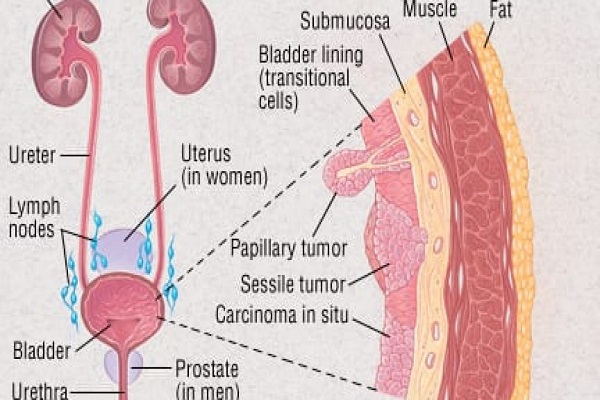
Colon Cancer
Colorectal cancer arises from a tumor forming in the inner wall of the large intestine says MedicineNet.com, and most cases form from polyps, which are growths on the inner lining of the colon. Because there are often no symptoms associated with the very early signs of colon cancer, removing any known polyps can greatly reduce your risk of cancer development.
As for symptoms of colon cancer, the most common is having blood in the stool that is dark, black, or tarry, according to Men’s Health. Having blood in your stool does not automatically mean cancer, however; it can also mean you have a bleeding ulcer or ulcerative colitis. Abdominal pain, weight loss, and a loss of appetite can also signify colon cancer.
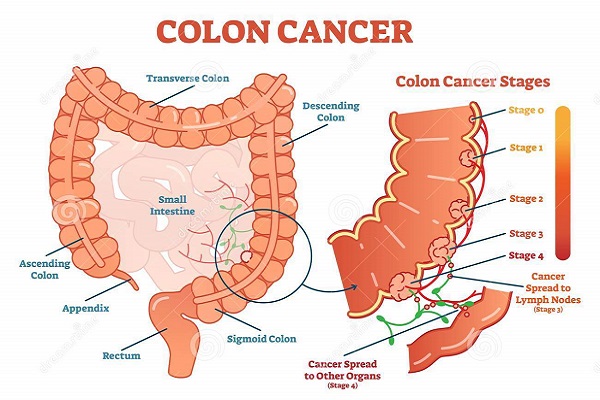
Testicle Cancer
The scary thing about testicular cancer is it’s just as likely to affect men between the ages of 20 and 45 as it is older males, says Cancer.Net. Testicular cancer typically develops in the germ cells, which are sperm-producing cells. While testicular cancer sounds daunting, the good news is that it is almost always curable if detected early, and it is typically still treatable even when it hits a later stage.
Some men do not experience any noticeable symptoms in the early stages of testicular cancer, but there are a few hallmark signs to look out for. One of the first signs is usually a small lump on the testicle or enlargement of the testicle itself. Though this lump may be no larger than a pea, it’s important to get it checked by a doctor just in case.
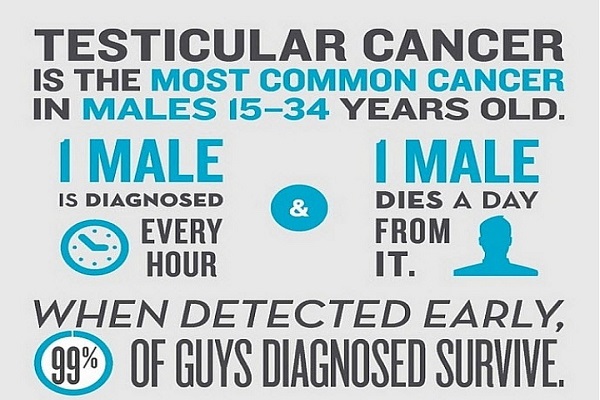
Kidney Cancer
Kidney cancer may not be a type you hear about as frequently as others, but UCLA Health says it affects thousands of men and women each year. If diagnosed early, the chances of survival increase, but once the disease has advanced into later stages, it can be very difficult to treat. The tricky thing, though, is there often aren’t many symptoms early on.
It’s possible to experience pain between the upper abs and back on the side where the cancer is located, and it’s also possible to experience flu-like symptoms, fever, rapid weight loss, and fatigue. Unfortunately, most people do not experience any signs or symptoms until the cancer has reached a more serious stage.
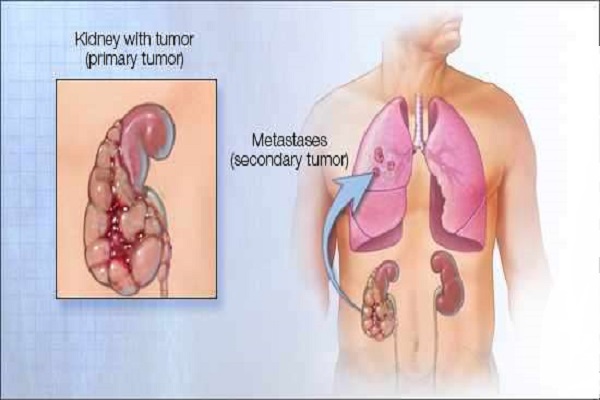
Stomach (Gastric) Cancer
We’re all familiar with stomach pain and nausea, but few of us ever consider frequent bouts of gastric pain may actually be related to stomach cancer. According to Cancer Treatment Centers of America, there are actually four different types of stomach cancer. Most cases start within the cells of the innermost stomach lining, and in the early stages, there are often no symptoms.
Some people do experience some stomach pain and nausea with this cancer, but because the symptoms match those of common bugs, many will not seek medical help. There is one peculiar symptom worth noting: a feeling of being extremely full, even after only eating a small meal. Others experience a lack of appetite and accompanying weight loss or heartburn.
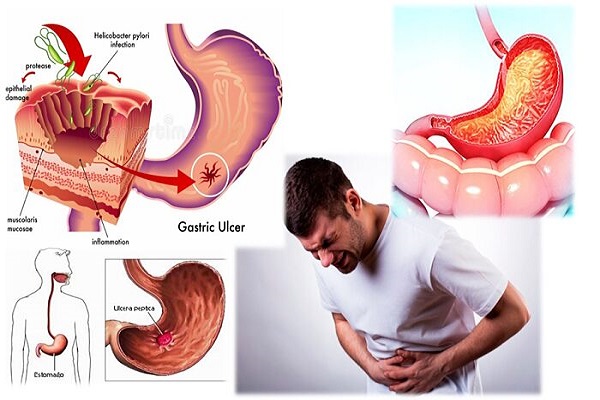
Ovarian Cancer
When abnormal cells in the ovaries begin to multiply out of control, tumors can form and spread to other areas of the body, says Healthline. While there are some symptoms associated with ovarian cancer, they can come and go and are very similar to symptoms of less serious illnesses.
Early symptoms for this disease include abdominal pain and bloating, difficulty eating in general, and an increase in urination. Heartburn, constipation, back pain, menstrual irregularities, and painful intercourse are also associated with ovarian cancer, but again, these symptoms alone may lead you to believe something else is amiss.
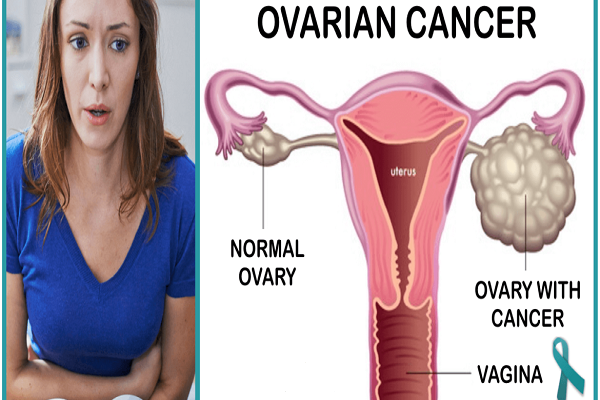
Liver Cancer
The liver’s function is to filter the blood, so in the case of liver cancer, cancer cells from elsewhere in the body can actually lodge themselves in the liver and grow. Liver cancer can also start in the organ itself. Once the disease hits the later stages, it can then spread to other parts of the liver.
In the early stages of liver cancer, there are nearly no symptoms, and those that are present are ones you could attribute to other illnesses. Weight loss, loss of appetite, and abdominal pain may occur. There’s good news for those who have a healthy liver, though — it’s rare to develop the disease out of the blue. But for those who have chronic liver disease, it’s worth being really in tune to these symptoms.
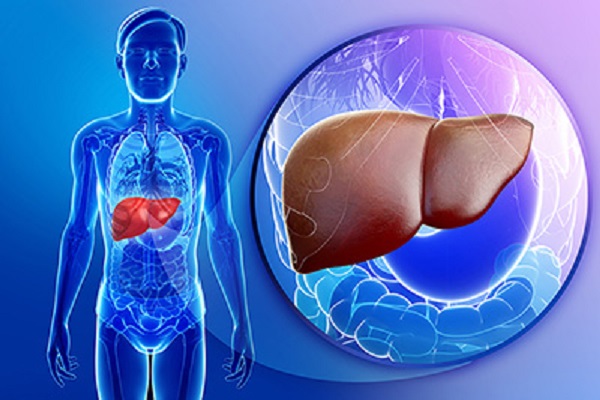
Vaginal Cancer
This type of cancer is rare, but because it has so few symptoms that can easily be ignored, it’s worth mentioning. According to Mayo Clinic, the most common type of vaginal cancer starts in the thin, flat cells that line the vagina’s surface, but it can also start in the pigment-producing cells or the connective tissue cells.
Most women who develop vaginal cancer don’t have symptoms early on, but as the cancer progresses, there are certain signs to look out for. Unusual vaginal bleeding may occur, and this can happen after intercourse or menopause. You may also feel a lump in your vagina and have painful, frequent urination.
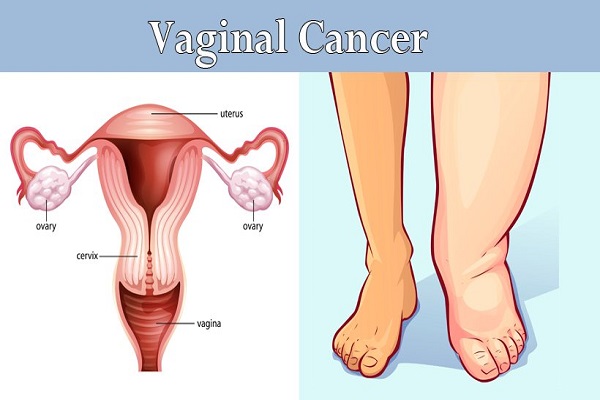
For appointment or screening service consultation, please contact:
- Ms. Võ Thị Mỹ Liên: (8428) 6280 3333, ext. 8424
- Ms. Nguyễn Thị Lệ: (8428) 6280 3333, ext. 8402
For more information about City International Hospital, please contact:
- Operator: (8428) 6280 3333, ext. 0
- Address: Level 3, No. 3, 17A Street, Binh Tri Dong B Ward, Binh Tan Dist. (Next to AEON Mall Binh Tan). Ho Chi Minh City.
- Website: https://cih.com.vn/en/










